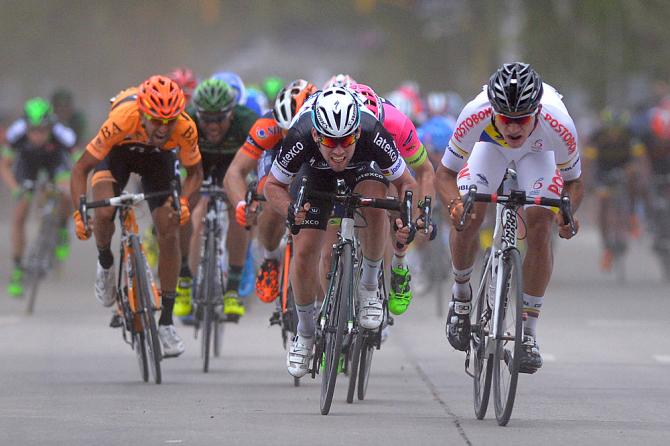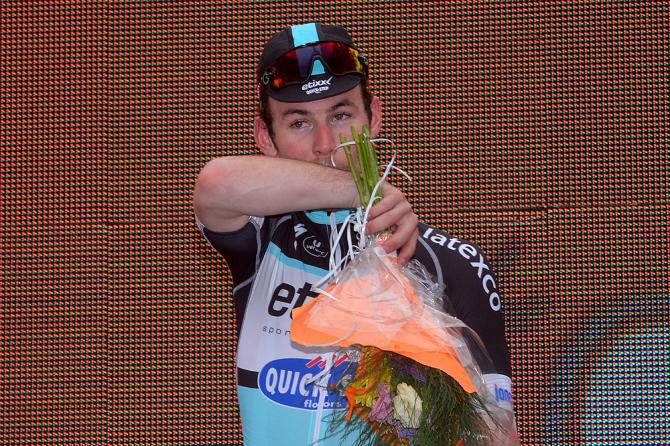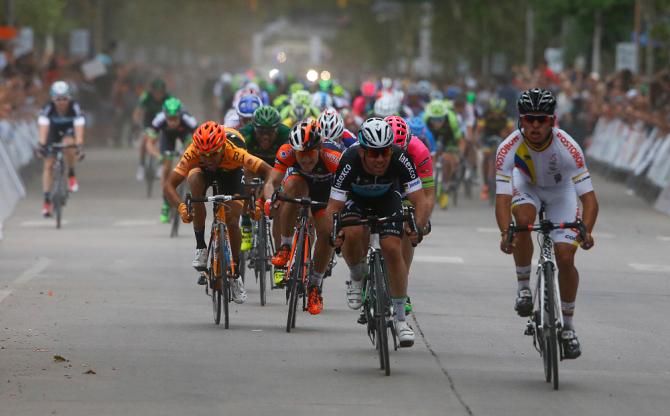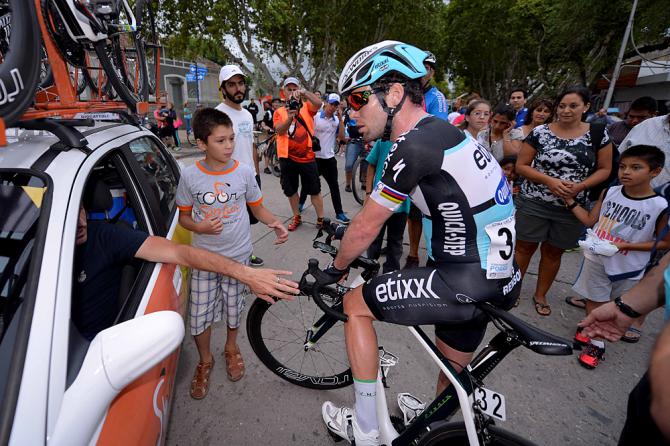Cavendish leaves it too late in Tour de San Luis opener
Missing marker in finishing straight proves costly




After wheeling to a halt past the finish line at Villa Mercedes, Mark Cavendish turned and soft-pedalled back in the opposite direction, scanning the faces of the riders ghosting towards the team cars or stopped at the roadside.
Eventually he found the man he was looking for, and nudged his way through the traffic to proffer a hand and offer a quick word of congratulations to Fernando Gaviria, the surprise winner of the opening stage of the Tour de San Luis.
Speaking to reporters near the podium a few moments later, Cavendish confessed that he had never before heard of the 20-year-old Gaviria, who is competing here for the Colombian national team. He might, however, have been interested to learn of Gaviria's background. Like the young Cavendish, he is an accomplished track performer, and he won the omnium at the London World Cup just last month.
By his own admission, Cavendish mistimed his effort and opened his sprint too late, although he was closing in on Gaviria by the line. He refused to dwell, however, on the hypothetical of what might have happened had he not run out of road in the finishing straight. "I don't know," Cavendish said. "He won so you can't say I would have caught him."
Gaviria had shown considerable presence of mind to launch his sprint early, with 300 metres still to go. Cavendish and the third-placed Sacha Modolo (Lampre-Merida) had chosen to keep their powder dry until the final 200 metres, and both men complained afterwards that the sign marking the distance to the line was nowhere to be seen.
"He got a jump, he went super fast," Cavendish said. "I saw there were 300 metres to go, it was a really small sign. I was waiting for [the] 200 [metres to go marker], I was waiting for 200, but I don't see 200. He jumped, he went super fast. In the end, I saw the line but I haven't seen 200 so I have to go. In the end, it was too late."
With teams limited to just six riders at the Tour de San Luis, controlling the peloton and ensuring a bunch sprint was by no means a straightforward task on Monday afternoon. In Modolo's Lampre-Merida team and the Bretagne-Séché squad of Yauheni Hutarovich, Etixx-QuickStep might have had some allies of circumstance, but ultimately the bulk of the workload fell on the shoulders of the men in black.
The latest race content, interviews, features, reviews and expert buying guides, direct to your inbox!
World champion Michal Kwiatkowski was particularly generous in his efforts, while Cavendish also singled out his new teammate Fabio Sabatini for praise. They succeeded in snuffing out the day's main break and offered nary a spark of hope to a volley of later attackers, but their best-laid plans came undone in those frantic final 300 metres.
"My team did a perfect job to keep me in front, they were in front for the last 50k, they did an incredible job so that's why I'm a bit disappointed not to have won to pay them back," Cavendish said. "I'm disappointed because the guys did more than a perfect job considering we've got a neo-pro on the team, Saba is new and we've only got six guys. They did a phenomenal job and I'm disappointed not to have paid them back."
That disappointment, one imagines, will dissipate quickly: there are chances to make amends even before the week is out. Cavendish has complained in the past that his defeats are more newsworthy than his victories. This one, on the opening day of a new season, ought to be kept in its proper context. The year is young.

Barry Ryan was Head of Features at Cyclingnews. He has covered professional cycling since 2010, reporting from the Tour de France, Giro d’Italia and events from Argentina to Japan. His writing has appeared in The Independent, Procycling and Cycling Plus. He is the author of The Ascent: Sean Kelly, Stephen Roche and the Rise of Irish Cycling’s Golden Generation, published by Gill Books.